By Upendra Mishra
WALTHAM, MA—The Massachusetts State Primary was a wake-up call for future Indian-American politicians and all Indian-American voters in New England, with one question on their minds: Why did Beej Das receive only 1,481 votes, or 1.7 percent of the total 84,872 ballots cast? This surprising upset happened in the Democratic primary in a heavily minority district with about 11,000 registered Indian-American voters- What went wrong? What can Indian-Americans learn from this going forward?
An article (With Only 1,481 Votes, Beej Das Loses in the Massachusetts Democratic Primary for US Congress) published in INDIA New England News on Sept. 5, received strong reaction from some readers raising objections about the so-called negative coverage of his election in INDIA New England News and especially the use of the words “only” and “badly” in an article.
 Following the criticism of INDIA New England’s coverage of the elections results, the newspaper looked deeper into the issue and talked to several people in the Indian-American community. Some of them spoke on the record and some off the record. We have tried to present a wholistic picture of the issue below.
Following the criticism of INDIA New England’s coverage of the elections results, the newspaper looked deeper into the issue and talked to several people in the Indian-American community. Some of them spoke on the record and some off the record. We have tried to present a wholistic picture of the issue below.
Background
First, here is some background: When Mr. Das announced his candidacy for the US Congress from the Third District in Massachusetts, there was a great euphoria in the Indian-American community. Indian-American candidates were doing quite well all over the country. Massachusetts being an overwhelmingly Democratic state, many thought Mr. Das had a great chance, given his background: an attorney, a businessman, well-educated and a minority candidate in a minority-majority district.
Initially, Mr. Das did well on the fundraising front. In the first quarter of fundraising, Mr. Das’s campaign raised a whopping $425,000 in the fourth quarter of 2017. It was considered a good-sized chunk for someone who had never run for an elected office before. He opened an office in Lowell and brought some professionals to his campaign. So far so good.
The Boston Globe Headline
The trouble for Mr. Das began in early June, when the Boston Globe published a story with headline “In college writings, Third District candidate compared minority groups to Nazis.” By the time Mr. Das clarified his position on his college writing days, the story was picked up by the main newspaper of the Third District, The Lowell Sun, headlining “Das fires back over student writings.”
“When a story came out last month about contentious arguments and crass comparisons in Beej Das’s decades-old college writings, the 3rd Congressional District candidate apologized and said he no longer holds the views described,” Lowell Sun wrote in its lead paragraph. “But two days after apologizing, his tone changed. Das, now 44, began publicly defending his essays for a Middlebury College student publication, which in part criticized the social effects of minority-only student groups and supported English as an official national language. He conceded that an analogy likening the attitudes of such student groups to those of the Third Reich was foolish, but said he stands by his broader points about the need for social integration.”
Lowell Sun reported that as Mr. Das’s response pivoted, he also started criticizing the Boston Globe, which published the initial story about his college essays.
“Das now argues he is the target of a media attack because, he said, he only used the terms “Third Reich” and “Aryan” and not the word “Nazi” as the Globe’s headline did,” Lowell Sun said.
In a lengthy interview with The Sun, Das said he believes his college writings were taken out of context and improperly summarized.
“The situation arose based on several articles Das wrote, all of which were acquired by The Sun, for the publication “Symposium: Middlebury College Journal of Politics.” In the fall 1993 edition, Das, at the time a sophomore, penned an article about multiculturalism and the dangers of growing tribalism,” Lowell Sun said.
In a brief interview with INDIA New England News, Mr. Das said despite the Boston Globe published a letter by Mr. Das’s campaign (Letter: Candidate’s college writing taken out of context), the Globe headline hurt his campaign, and especially in the Jewish community.
Mr. Das said he wrote that infamous article 22 years ago and did not even use the word “Nazi.” “That I wrote as a student,” Mr. Das told INDIA New England News.
The Lowell Sun said that Mr. Das’s argument included the following reference:
“Cultural organizations that encompass all are needed in society as a tool against ignorance and provincialism, but the formation of exclusive groups which cater and are restricted to ‘minorities’ is as repulsive and counterproductive to our objectives as the Third Reich’s belief that ‘Aryans’ were superior to non-Aryans,” Das wrote.
In a separate comment to INDIA New England News, Mr. Das said he will be better prepared next time.
“The Globe article was an example of establishment politics as usual. The Globe decided to find and then distort an academic debate piece I authored at age 19, but decided not to investigate more troubling and recent facts regarding a leading candidate preferred by the establishment,” Mr. Das said. “The system is broken. We will be better prepared for the battle next time.”
Mr. Das reflected his own views on his election experience in a Facebook comment after publication of election results in INDIA New England News.
“Indian Americans rarely vote in non-Presidential primaries such as this election. While we were hopeful that an Indian American candidate would give Indian Americans a reason to vote when they regularly otherwise do not, that did not happen,” Mr. Das said. “I am not alone in this. My friend Suraj Patel, who ran his own Congressional campaign in NY this year also did not realize the level of Indian American support at the ballot box that he had hoped for.”
Das blames his failure at polls to money and machinery
Mr. Das said his failure at the polls can be summarized by two powerful forces: money and machinery, neither of which he had sufficient amounts of to be competitive.
“On money, this race required at least $1m – $1.5 (m) to be competitive in the final stretch (mail, radio, TV, phone, and GOTV). We had about $500k, which was never going to be enough. On machinery, Dan Koh, Lori Trahan, Barbara L’Italien, Rufus Gifford, and Juana Matias all came from powerful political backgrounds and machines. Our message — of an inclusive America where all voices should be heard — while powerful, did not compensate for the fact we had no machinery to actually get out the vote on election day,” he said. “Our internal polling suggested we would be close to 9k votes without our expansion universes. Alas, without a strong field operation (see above comment about money), we were not able to get our voters to the polls reliably.”
Mr. Das said he is proud to have been the first Indian-American on the ballot from a major party running for federal office from the Commonwealth of Massachusetts.
Related article:
Reader Says INDIA New England News Failed Mr. Beej Das by Not Providing Him a Platform
“While INEN (INDIA New England News) was not very supportive of my candidacy (as you are entitled not to be), I am humbled by the support we received from temples, community organizations and activists within the Indian community. While we did not win, or even come as close as I would have liked, we did something worth doing: stand for something and run.”
Indian-American community reacts
Members of the Indian-American community said that another major reason for Mr. Das’ poor performance in the election was a complete lack of motivation in the Indian-American base. Several community members in the Third District told INDIA New England News that they were never contacted either by Mr. Das, or his campaign. They did not receive any flyers, emails, postcards or even any knock on their doors.
It is estimated that there are between 11,000 and 13,800 Indian-American registered voters in the Third District’s 37 towns including Lowell, Lawrence, Andover, Chelmsford, Sudbury and Marlborough among others, with a vast majority of them identifying as people of Gujarati origin.
“All his campaign had to do was pick up phonebooks of these towns and go for last names Shah and Patel and call them,” said an Indian-American from the Third District. “Neither me, nor my friends, we did not hear anything from his campaign. All we knew about his campaign was that he was running for election from reading an article in INDIA New England.”

Ramila Thakkar, President of Gujarati Association of New England, known as Gurjar, said that although Gurjar charter states no political or religious involvement and thus Gurjar may not gotten involved as an organization in a political campaign, but as individuals, community members would have spread his name in the voting district.
“It’s unfortunate that Beej Das fell short on the votes. It’s hard to tell what happened. The campaign could have been more aggressive. I, as the head of Gurjar, never heard from their campaign office. Had they approached us we would have definitely helped spread the word to those in the voting district. Word of mouth is the best publicity,” said Ms. Thakkar. “When an Indian candidate runs for office, we should transcend regionalism and stand united as one Indian. It’s moment of pride for all of us to be visible and our voices heard nationwide.”
Ms. Thakkar said it is a lesson learned for future use.
“Candidates should approach various Indian organizations for a united front,” Ms. Thakkar said.
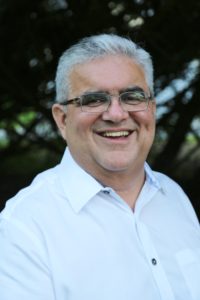
Dinesh Tanna, founder and CEO of Tanna Insurance and supporter of many charitable causes in New England, said that following the Beej Das election, there has been a healthy debate about Indian-Americans’ involvement in the political process in Massachusetts.
“Hopefully, that debate will turn into participation, resulting in large voting numbers from the community,” Mr. Tanna told INDIA New England News via email.
Given the large numbers of Indian-American voters in the District, Mr. Das received 1,481 votes out of total 84,872 votes cast in the primary.
“Either folks from our community voted for another candidate or they did not vote at all. The consensus seems to be the latter. It’s really unfortunate that we have earned the right to vote and we don’t exercise this right. Our highly educated and prosperous community of immigrants and our children should be voting in high numbers,” Mr. Tanna said. “We should never box these candidates into categories such as Bengali-Americans or Gujarati-Americans, etc. The candidates themselves should not allow this. If we continue to do that, we will never have the kind of success we are hoping for.”
Mr. Tanna said there were several people who had never heard of the candidate.
“I had obviously heard of him and met him too. It seems the name recognition was not where it needed to be and we had a good number of high profile folks last night,” said Mr. Tanna, referring to fundraising gala of Indian-Americans. “Lexington has been cited as an example where Indians have gone beyond their sub-ethnicities and have formed a cohesive group of all Indian-Americans. In Burlington, Ram and Jaya Voruganti are trying hard to get involved with local politicians and integrating the Indian voters into the system. At the end of the day, candidates are going to need more than Indian-American votes and the voters are not going to care about one’s ethnicity as far as where in India she or he or their parents are from. It matters who we vote for, whether it’s an Indian-American candidate or somebody else. The bottom line is, registered voters within our community have to vote.”
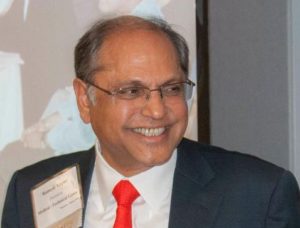
Ramesh Kapur, who has been active in politics from behind the scenes since 1980 in Massachusetts and nationally since 1986 and held high finance positions in the elections of Senator Ted Kennedy, Senator John Kerry, Senator Tom Daschle and the Democratic Senatorial Campaign Committee, said any successful candidate must first solidify their base.
“Every politics is local. You never take anything, especially your base, for granted. If you’re Indian-American, you should be comfortable in your Indo-American skin,” said Mr. Kapur. “You should press on Indian-American issues, the issues that are important to your base. Solidify your base first.”
Mr. Kapur gave the example of how by energizing her African-American and minority base Democrats, Ayanna Pressley upset 10-term U.S. Rep. Michael Capuano in a primary election this year.
Related article:
Ayanna Pressley is poised to be the first black woman to represent Massachusetts
“You base must be energized and engaged. Don’t take your base for granted” Kapur repeatedly said. “What we have seen in Lexington is amazing. The Indian-Americans there are united, winning elections and have created a solid base. If any opening comes in the area and anyone from Lexington runs, they will do quite well.”
Talking about controversies, Mr. Kapur said that Mr. Das was definitely a formidable candidate and that is why someone must have done some research in Mr. Das’ past and came up with his college writings.
“The best defense and strategy in such cases is to come up front with negative stories, apologize and move on. Focus on your message and solidify your base,” Mr. Kapur said. “Get the all the dirt out first—if there is any, and may be start your electoral participation at local level first.”
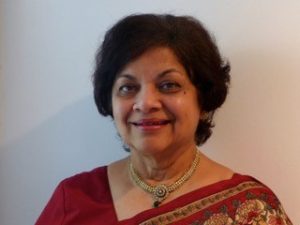
Dr. Janine Saldanha, MD, a community leader at various forums including the Indian-American Forum for Political Education and the Indian Medical Association of New England, said the Third District is a large district to be individually contacted, but an earnest effort should be made.
“Last night I was talking to a Gujarati friend who said he had not contacted anyone in that group, though many live in the 3rd district,” Dr. Saldanha said. “If correct, it’s very unfortunate. Perhaps next time he can speak at a Gurjar or Pathidhar Samaj function. It is too large a district for all to be individually contacted. My best wishes to him for the future. Hope he succeeds! He is walking the walk and will be a role model for others.”
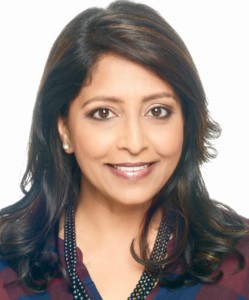
Vineeta Kumar, a Lexington, MA resident who has been active in town politics and working with local as well as Indian-Americans, said it was exciting to see over 100 Indian-Americans running for political positions at various levels across the country this year.
“This is a clear sign of Indian-Americans acknowledging and acting upon the need to participate and contribute in shaping the future of this great nation, and not be silent observers. As Indian-Americans continue to integrate into the American fabric, we’ll see an increase in Indian-American candidates as well as voter turn-out. I am excited about the positive contributions we as Indian-Americans can (and will) make in both those roles,” Ms. Kumar said. “The ability to energize and mobilize the relatively un-engaged Indian-American community can make a difference for candidates who choose to tap into this community. Mobilizing an untapped base is great campaign strategy anyways, case in point- Ayanna Pressley’s campaign for the Congressional position from MA-7 District.”
Ms. Kumar said that it is true that the Indian-American community has traditionally not been politically active.
“But that is changing. In Lexington we have seen an increase in the civic and political engagement of the Indian-American community- whether it is running for elected town positions, joining campaign committees, hosting coffees, donating funds or just showing up to vote. This engagement level is increasing every year, irrespective of whether or not there are Indian-Americans running for elected positions,” Ms. Kumar said. “In my opinion, there are two key reasons for this level of engagement. One, there has been a deliberate effort on part of the Getting Involved Group (GIG) to create awareness and support for civic engagement (I am very proud of the work we do as GIG). Secondly, political candidates have made efforts to reach out, engage and seek the support and votes of Indian-Americans.”
Lexington model is already inspiring Indian-Americans in other towns.
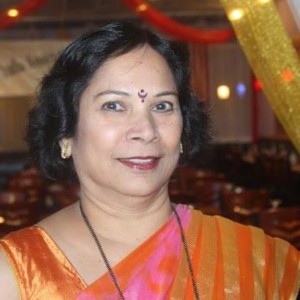
“Taking the lessons learned from the Lexington Indian community, whose involvement in the town resulted in winning several positions in the town’s administration, a few like-minded people from Burlington founded an organization, Indian Americans for Burlington (IAB), to promote and participate in Burlington’s civic, cultural, educational and community activities,” said Jayashree Voruganti, a resident of Burlington and a former president of India Association of Greater Boston. “We are making slow but steady progress towards achieving our goals and it’s our hope that Indian-American communities will engage with their and cities throughout Massachusetts in a similar manner. Getting involved starting at the local level is an integral part to winning state and national elections.”
As evidenced by the Massachusetts Third District primary election, the Indian-American community cannot depend only on Indian votes to win any election.
“It is necessary to work closely with local political parties and leaders to demonstrate that our voting block matters,” said Ms. Voruganti. “We need to get out and vote for our candidates and be counted as a reckoning force.”






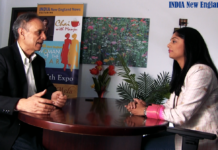

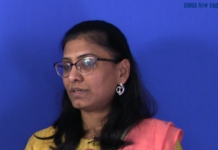








>> This surprising upset happened in the Democratic primary in a heavily minority district with about 11,000 registered Indian-American voters
Why this is a surprise? Out of 11000 registered Indian American voyers, nearly 30% are Republicans. Why would they vote for Democratic Primary? Remaining 7500+ registered voters, most probably many are registered as independents.
>> When Mr. Das announced his candidacy for the US Congress from the Third District in Massachusetts, there was a great euphoria in the Indian-American community.
Oh really? Where did INE hear that? Many people in his district have not even heard of him.. Personally I did know about this candidate till 2 weeks ago till Amit Dixit called me. Then I wondered as to who heck is Beej Das? What is his message? What is the compelling value proposition why one should vote for him? (Is it because he is an Indian?). That in a way is racism isn’t it?. I would say – Screw this argument, just because he is an Indian- All Indians should support him !!! Not in my books
Finally my pet peeve..
What has he done for Indian American community in New England for him to deserve Indian American vote. It is amazing some of these people reach out to Indian American community only when they are in need.